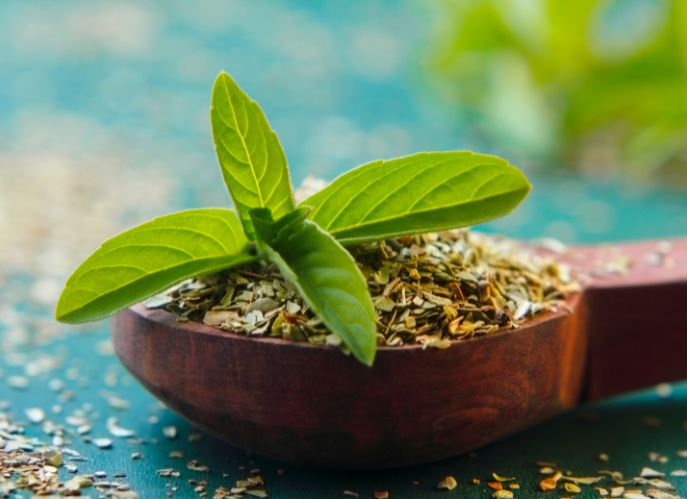In the realm of herbal medicine, Tulsi holds a place of reverence and mystique. Known scientifically as *Ocimum sanctum* and commonly referred to as Holy Basil, it is not just an herb but a symbol of purity, health, and spiritual harmony in Indian culture. This aromatic plant, with its green or purple leaves, is an integral part of both Ayurvedic medicine and Hindu religious practices. Let’s explore the fascinating world of Tulsi, diving into its definition, myriad uses, benefits, and how to incorporate this sacred herb into daily life, along with some intriguing fun facts.
What is Tulsi?
It is a perennial, branching plant that grows wild in the tropics and warm regions. It’s distinguished by its strong fragrance and a history of worship among Hindus, who consider it a physical manifestation of the goddess Tulsi, a consort of the god Vishnu. There are three main types grown in India: Rama, Krishna, and Vana Tulsi, each with unique flavors and medicinal properties.
Uses and Benefits
- Natural Immunity Booster: Packed with vitamin C and zinc, making it a natural immunity enhancer. Its antimicrobial properties help fight infections, while its adaptogenic nature helps the body adapt to stress and boosts overall stamina.
- Reduces Stress and Anxiety: As an adaptogen, it has a unique ability to regulate cortisol levels, reducing stress and promoting mental balance. Its calming properties make it a popular remedy for anxiety and emotional well-being.
- Supports Respiratory Health: Often used to treat coughs, colds, and other respiratory ailments due to its anti-inflammatory and antimicrobial properties. It helps in mobilizing mucus and soothing the respiratory system.
- Heart Health: Rich in antioxidants, it can mitigate the risk factors associated with heart disease, including high blood pressure and cholesterol levels. It promotes heart health by enhancing the body’s antioxidant defense system.
- Skin and Hair Care: Applying Tulsi-based oils or extracts can improve skin texture, add glow, and treat skin conditions like acne and eczema. Its anti-fungal properties also make it beneficial for scalp health and hair growth.
- Detoxification: Tulsi supports liver function and detoxification. It cleanses the body by flushing out toxins and has a mild diuretic effect that helps in reducing uric acid levels and cleansing the kidneys.
How to Use Tulsi

Tulsi can be enjoyed in various forms, making it easy to incorporate into daily routines:
- Tea: Its leaves can be steeped in hot water to make a refreshing and therapeutic tea.
- Chewing Fresh Leaves: Consuming a few fresh Tulsi leaves every morning can help boost immunity and provide a daily dose of its health benefits.
- Tulsi Supplements: Available in capsules or liquid extracts, these can provide a concentrated dose of Tulsi’s medicinal properties.
Fun Facts
- A Sacred Plant: In Hinduism, it is worshiped as a goddess and is a key element in many religious rituals. It’s common to find a Tulsi plant in the courtyard of Hindu homes.
- Environmental Purification: Tulsi is believed to purify the environment. It emits high levels of oxygen during the day and has been shown to possess significant air-purifying properties.
- Cultural Symbolism: Tulsi is married to the Hindu god Vishnu in an annual ceremony known as Tulsi Vivah, symbolizing the end of the monsoon and the beginning of the wedding season in India.
Tulsi’s revered status in Indian culture is matched by its vast health benefits, making it a true superherb. Whether used for spiritual purposes or as a natural remedy for various ailments, Tulsi is a testament to the power of nature’s healing. Embracing Tulsi into your life means not just embracing health but also a piece of ancient wisdom and spiritual harmony.



